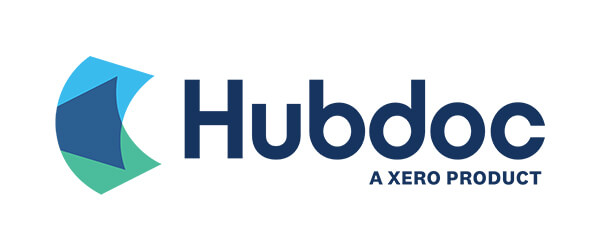Benefits Of Outsourcing Payroll Services
Outsourcing the payroll function is finding increasing acceptance, especially small and medium enterprises that cannot justify a full-time HR or payroll division as it is not core to the business of the entity and may well not be a full-time job. Depending on the stage of an entity’s life cycle, it may be prudent to consider outsourcing the function until the dedicated resource(s) can be justified.
Summarised below are the key factors for outsourcing payroll services and why it may make sense for an entity.
Top 6 Reasons To Outsource Payroll Services
Cost-effective
Most outsourced payroll providers charge on a per-employee-per-month basis. Some providers ask for a minimum fee irrespective of the number of employees. The outsourced cost to the entity is therefore minimal, especially if the number of employees is below 25 and the comparative cost of hiring a full-time employee (who may not be fully utilised and yet must be paid an industry wage) is much higher. In addition to a basic salary, a full-time employee must is a bookkeeping certificate worth it be provided a visa, end of service benefits, encashment of leave and other such perks which drive up the cost of processing the payroll. In the long run, with an employee strength of 25 or less, outsourcing the function can reduce operational cost.

Confidentiality of The Payroll
Confidentiality of the payroll is often undermined and under rated. Payroll details divulged, intentionally or otherwise to those who need not be in the know can have severe repercussions. Sincere and dedicated staff members earning less than someone who is not equally dedicated or committed can dishearten them prompting them to leave or adopt a “less than interested” attitude going forward. Similarly, management desiring to reward someone with a “little extra” can be in a difficult situation if this fact is leaked. Confidentiality of the payroll therefore becomes critical, especially at the senior level. Outsourcing of the payroll function ensures that confidentiality is maintained and even the accountant need not be privy to the earnings of staff members as outsourced service providers often submit a summarised journal entry for accounting purposes, hence ensuring confidentiality.
Optimal Use of Resources
Payroll processing is an on-going operation for every business. Depending on the activity of the Company and the complexity of operations, it may demand significant time and effort each month to get the payroll right each month and in time. An accountant already stressed with routine accounting, accounts receivable and payable functions can face severe time constraints at the month-end when financial reporting is mandated by owners and shareholders, vendors are to be paid, customers are to be chased for payments and other such routine tasks. Under these circumstances, an outsourced service provider who assumes responsibility for preparing the payroll, having it vetted and arranging for its payment and passing of accounting entries can ease the burden of the accountant, whose skills and time can be put to more productive use. Additional payroll related activities such as filing returns, calculating contributions to pension funds, preparation of cheques, etc. take up the further time of an accountant.
Data Security
Payroll data resident on a corporate server is prone to access by unauthorised persons. Lack of diligence on the part of those handling sensitive payroll data to maintain confidentiality can be detrimental to the interest of the entity. Payroll data hosted outside an entity’s work environment can, to a great extent, prevent such occurrences. An outsourced service provider is likely to be more vigilant over client data and take steps to ensure that access to data is protected, shared on a need-to-know basis and is regularly backed up, to protect their reputation as a service provider and to provide assurance to their clients. Data is, therefore, more likely to be secure and protected in the outsourced model.
Professional Payroll Service
Outsourcing payroll services implies passing the responsibility to professional and experienced hands. Payroll service providers employ experienced individuals who are familiar with payroll processing and the applicable rules and regulations of the land and the compliance requirements. There is also a much lower possibility of payroll fraud in the outsourced model, especially if there is no division of payroll duties internally in an organisation. Outsourced payroll providers also bring to the table their experience and solutions to which they may be privy because of interacting with other clients.
Compliance With Law
Compliance with the latest rules and regulations is critical for any organisation. Failure to comply can lead to penalties and loss of reputation. An outsourced service provider is more likely to be familiar with the relevant laws and regulations, especially when there are regular changes to statutes on payroll and remuneration. Reputable service providers have a dedicated team who update the operational teams on such changes. These changes will be brought to the attention of the management of an entity who will then make suitable internal changes to enable the outsourced service providers to comply with the laws. It is also essential to file accurate payroll reports to local and state bodies in a timely manner. Outsourced service providers can take on this responsibility ensuring that deadlines are met, and accurate reports are filed in the required time frame.
State-of-the-art Software System
Payroll data security, processing, and time management are dependent on reliable, secure and easy to access and use the software. Specialised HR and payroll software that helps automate processes and reduce time spent on payroll activity is a valuable and indeed an essential tool. Such software would usually come with a cost which small and medium-sized organisations may not be able to afford. Reputable service providers would invest in such software and assume responsibility for upgrades, changes in regulations, backups and security without passing on the financial burden. Organisations therefore receive the advantage of the software without incurring significant cost and responsibility.